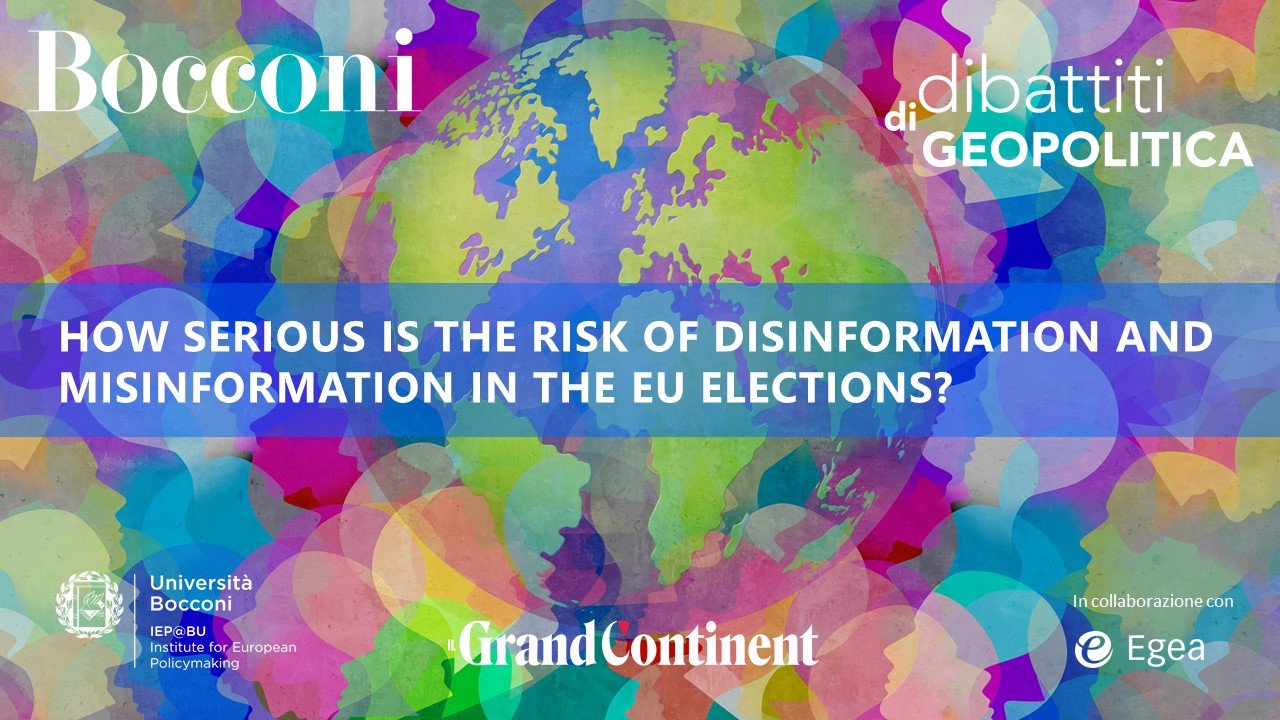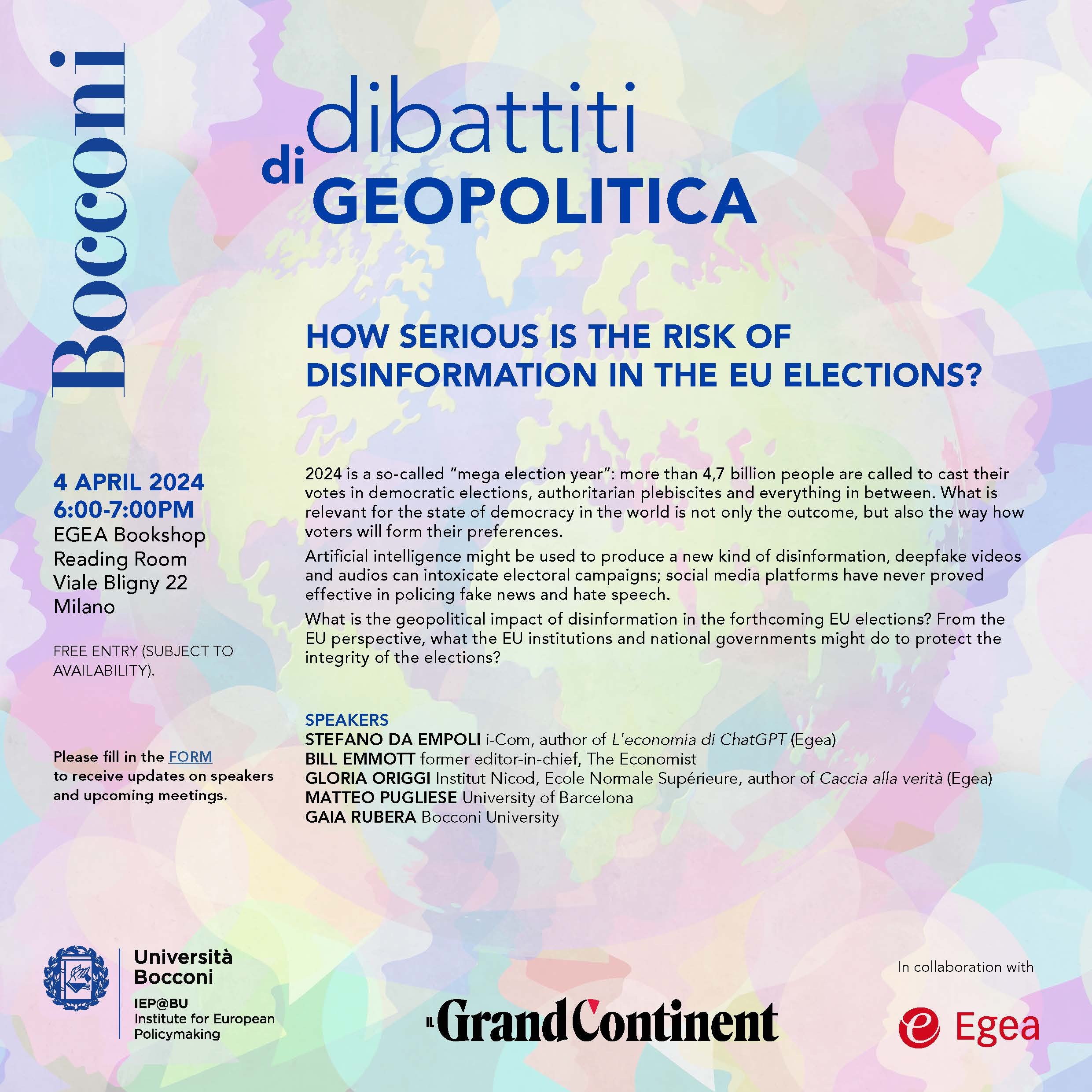How serious is the risk of disinformation and misinformation in the EU elections?

2024 is a so-called “mega election year”: more than 4,7 billion people are called to cast their votes in democratic elections, authoritarian plebiscites and everything in between. What is relevant for the state of democracy in the world is not only the outcome, but also the way how voters will form their preferences.
Artificial intelligence might be used to produce a new kind of disinformation, deepfake videos and audios can intoxicate electoral campaigns; social media platforms have never proved effective in policing fake news and hate speech.
What is the geopolitical impact of disinformation in the forthcoming EU elections? From the EU perspective, what the EU institutions and national governments might do to protect the integrity of the elections?
SPEAKERS
STEFANO DA EMPOLI i-Com
BILL EMMOTT former editor-in-chief, The Economist
GLORIA ORIGGI Institut Nicod, Ecole Normale Supérieure
MATTEO PUGLIESE University of Barcelona
GAIA RUBERA Bocconi University
MODERATOR
STEFANO FELTRI Communication Advisor at IEP@BU

-
Filedibattiti-IEP2024-SERIE-autunno.pdf (366.33 KB)
IEP@BU does not express opinions of its own. The opinions expressed in this publication are those of the authors. Any errors or omissions are the responsibility of the authors.




